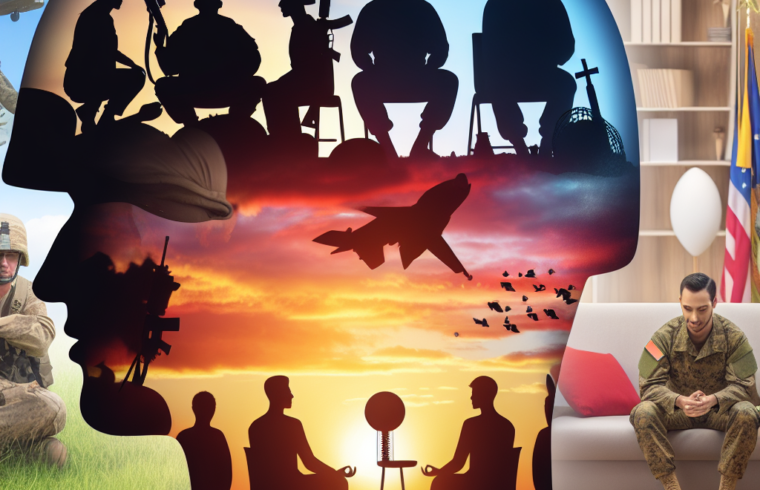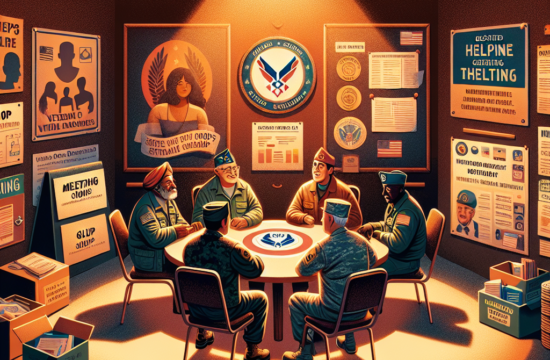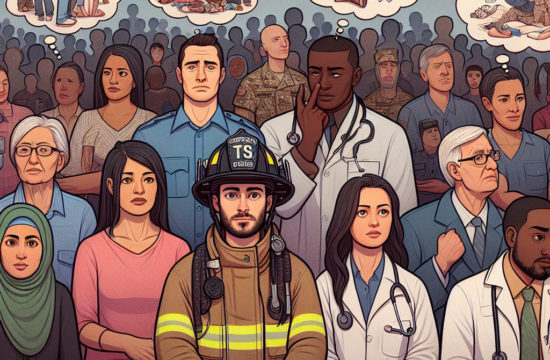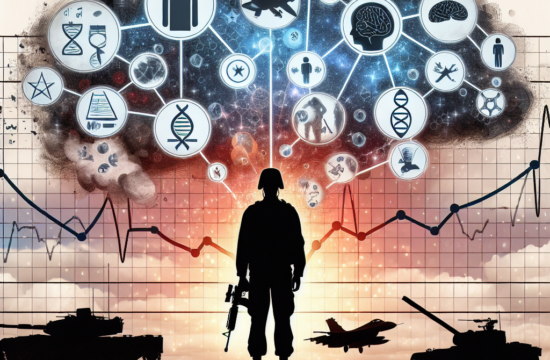Importance of veteran mental health programs
Understanding the Unique Needs of Veterans
From my experience, veterans face a unique set of challenges when transitioning back to civilian life. Military training and operations put immense mental and physical strain on individuals. Unlike the general populace, veterans deal with a range of specialized mental health concerns such as PTSD, anxiety, and depression. Hence, mental health programs tailored specifically for their needs are essential. These programs bridge the gap that often exists between medical health professionals and the unique experiences that veterans go through.
==> Thank you for reading this post! Click Here If you are looking for support and Victory over PTSD.
Moreover, these programs provide a safe space for veterans to share their experiences and get the help they need. Many veterans feel alienated when they return to civilian life. In a dedicated veteran mental health program, they interact with others who have walked in their shoes, fostering a sense of community and understanding. From support groups to one-on-one therapy sessions with counselors experienced in military life, such programs really cover it all.
Add to that the convenience of tailored services. Veterans Affairs (VA) or other dedicated organizations ensure that these programs are accessible, affordable, and effective. This level of specialized attention is crucial because it makes a tangible difference in the lives of veterans, some of whom may not seek help otherwise.
Personalized Treatment Plans
Now, let’s talk about personalized treatment plans. It’s not a one-size-fits-all kind of deal. Every veteran has their unique story, their unique traumas, and therefore, their unique treatment requirements. Personalized mental health programs create a customized plan after thoroughly assessing the individual’s history, mental state, and specific needs. This ensures that the treatment is far more effective in addressing underlying issues.
For instance, while one veteran might respond well to cognitive-behavioral therapy (CBT), another might find more solace in eye movement desensitization and reprocessing (EMDR). When you customize the treatment, it makes it easier for the veteran to engage and commit to the process. From my perspective, personalization is key to maintaining long-term mental health.
Field experts work closely with the veterans during the process, making regular adjustments to their treatment plans. This iterative method not only keeps the therapy dynamic but also yields better results. It’s about giving veterans the agency and flexibility they deserve while striving towards their mental well-being.
Access to Resources
Let me tell you, the sheer volume of resources available through veteran mental health programs is astounding. We’re talking about everything from informational booklets and online portals to helplines and mobile apps. It’s about making sure Veterans can access help whenever they need it. That’s a game-changer.
Imagine having a mobile app that offers mindfulness exercises, SOS contact numbers, and even virtual therapy sessions. Such resources provide veterans with immediate and continuous access to preventive measures, self-help tools, and professional support. They can catch issues before they escalate.
On top of that, these resources act as lifelines for those who might be hesitant to join physical programs or disclose their struggles. The access to instant, sometimes anonymous support can make all the difference, helping veterans maintain stability and emotional well-being.
The role of community support in veteran mental health
Families as the First Line of Support
From my viewpoint, families play a huge role in a veteran’s mental health journey. They are usually the first to notice when something’s off and can provide emotional and moral support. The involvement of family provides a solid foundation for veterans to start their recovery journey. Round-the-clock encouragement and understanding from family members significantly boost a veteran’s resilience.
Moreover, family support extends to facilitating access to professional help. Sometimes veterans are reluctant to seek assistance. Family members can play a pivotal role in encouraging them to take that first step toward seeking professional help. Having someone they trust to advocate on their behalf can make a big difference.
More practically, families offer a continuous support network that many veterans might lack otherwise. When they return home, veterans often see their family members as their closest allies. This continual presence can provide comfort and stability, helping them navigate through difficult times more effectively.
Community Programs
Besides family, community programs are also invaluable. From my view, community programs offer veterans a chance to reconnect with the world around them. These programs aren’t just about therapy; they include social gatherings, sporting events, and volunteer opportunities. Each serves to reintegrate veterans into society.
In my years of engagement, I’ve seen how community programs reduce feelings of isolation among veterans. By participating in these programs, they form bonds with individuals who share similar experiences. This camaraderie can work wonders for mental health, promoting a sense of belonging and mutual support.
Communities that prioritize veteran health also invest in training local therapists and counselors who understand military culture. This tailored approach ensures that veterans receive the right kind of support, whether they are attending group therapy sessions or individual counseling. The familiarity and shared experiences help build trust, which is essential for effective mental health treatment.
Peer Support Networks
Equally important are peer support networks. Trust me, nothing beats having someone who fundamentally understands what you’re going through. Peer support networks connect veterans in informal or structured settings to share experiences and offer support. These networks act as both a safety net and a springboard for veterans looking to improve their mental health.
What I’ve observed is that peer support offers authenticity. Hearing from someone who’s walked in your shoes makes it easier to open up about your own struggles. This sense of understanding and empathy can often spur personal growth and healing.
Additionally, peer support networks provide accountability. Veterans can check in on each other, commiserate over shared struggles, and celebrate each other’s milestones. It creates a cycle of continuous care and encouragement that’s instrumental in maintaining long-term mental health.
The impact of untreated mental health issues on veterans
Physical Health Consequences
Untreated mental health issues don’t just affect the mind; they take a toll on the body as well. It’s a holistic problem. In my experience, issues like anxiety and depression can manifest physically, leading to conditions such as chronic pain, hypertension, and even heart disease. The mind-body connection is strong, and neglecting mental health can exacerbate physical ailments.
Veterans, in particular, are often dealing with pre-existing physical conditions resulting from their service. Stress and other mental health issues can worsen these conditions, making life even more challenging. Simple activities become arduous tasks, and this can spiral into further mental health decline.
From what I’ve seen, treating mental health issues promptly can act as a preventive measure for many physical ailments. Addressing the root cause often mitigates the severity of physical symptoms, making it easier for veterans to lead healthier lives overall.
Socio-Economic Ramifications
When mental health issues go untreated, the socio-economic consequences can be severe. Think about it: many veterans struggle to hold down jobs or pursue educational opportunities due to their mental health struggles. This makes it harder for them to sustain themselves and their families. Financial stress further aggravates mental health issues, creating a vicious cycle.
Untreated mental health issues can lead to social withdrawal, making it hard to maintain relationships or build new ones. Veterans may find themselves increasingly isolated, which only compounds their mental health struggles. The resulting loneliness and lack of support can be devastating.
On a broader scale, the socio-economic impact extends to communities and countries. When veterans aren’t able to contribute due to untreated mental health issues, it strains social services and reduces overall productivity. Therefore, addressing these issues promptly isn’t just a matter of individual well-being; it’s a community and national priority.
Increased Risk of Substance Abuse
Another major concern is the increased risk of substance abuse. When mental health issues aren’t adequately addressed, veterans may turn to alcohol or drugs as a form of self-medication. It’s a dangerous path that often leads to addiction and additional health problems. I’ve seen this pattern all too often. Addiction can escalate quickly, turning a manageable issue into a life-threatening situation.
The impacts of substance abuse extend beyond the individual. Families suffer, relationships are strained, and the cycle of mental-health-related issues worsens. Treating mental health issues early can prevent the descent into substance abuse, offering a safer, healthier alternative for managing symptoms.
There are numerous programs specifically designed to address both substance abuse and mental health issues in veterans. These dual-diagnosis treatments are essential to breaking the cycle and offering a pathway to recovery. Trust me, when both issues are treated simultaneously, outcomes improve significantly.
How specialized therapies can help veterans recover
Trauma-Focused Cognitive-Behavioral Therapy (TF-CBT)
One of the most effective therapies I’ve seen is Trauma-Focused Cognitive-Behavioral Therapy (TF-CBT). This specialized form of CBT targets trauma specifically, making it highly relevant for veterans who often have traumatic experiences from their service. TF-CBT helps veterans process their trauma in a controlled, safe environment, reducing symptoms like PTSD and anxiety.
In TF-CBT, it’s all about gradual exposure to trauma-related memories and learning coping mechanisms. Veterans work with therapists to reframe negative thoughts and reduce their trauma-related distress. This helps them regain control over their lives. Trust me, it’s transformative to see veterans unburden themselves and reclaim their mental well-being.
What makes TF-CBT unique is its focus on both thoughts and behaviors. Veterans learn to identify harmful thought patterns and replace them with healthier ones, all while engaging in behavior modifications that improve their coping strategies. It’s a comprehensive approach that yields long-lasting results.
Eye Movement Desensitization and Reprocessing (EMDR)
Another powerhouse in the therapy world is Eye Movement Desensitization and Reprocessing (EMDR). I’ve been amazed at how effective EMDR can be for veterans. This therapy uses eye movements to help the brain reprocess traumatic memories, reducing their emotional impact. EMDR allows veterans to integrate traumatic experiences without overwhelming distress.
In an EMDR session, the therapist guides the veteran through traumatic memories while simultaneously engaging them in specific eye movements. This dual-focus approach helps to desensitize the memories and changes the way they are stored in the brain. Over time, the emotional burden of these memories decreases, allowing for better mental health.
What’s exceptional about EMDR is how quickly it can bring relief. Veterans often notice improvements after just a few sessions. This rapid efficacy makes it an appealing option for those who are struggling with severe symptoms and need prompt relief. EMDR’s structured approach also makes it easier for veterans to follow, increasing their engagement and commitment to therapy.
Group Therapy Programs
Lastly, I can’t stress enough the importance of group therapy programs. When veterans come together to share experiences and support each other, the results are phenomenal. Group therapy provides a platform for veterans to discuss their struggles openly, learning from each other’s experiences and coping strategies.
What’s fantastic about group therapy is the sense of camaraderie and mutual understanding it fosters. Veterans often feel alone in their struggles, but hearing others speak about similar experiences can reduce feelings of isolation. This collective healing process accelerates recovery and fosters a strong support network.
In addition to emotional support, group therapy also offers practical advice. Veterans share resources, recommend therapists, and provide firsthand insights into what therapies work best. These shared experiences can be incredibly valuable, providing a roadmap for others to follow on their journey to mental well-being.
Frequently Asked Questions
What are some of the unique mental health challenges faced by veterans?
Veterans often face unique mental health challenges such as PTSD, anxiety, depression, and other trauma-related conditions. These issues stem from their military training and operations, making specialized mental health programs essential for their needs.
How can families support the mental health of veterans?
Families can act as the first line of emotional and moral support, noticing early signs of mental health issues and encouraging veterans to seek professional help. Their continuous presence and understanding provide a strong foundation for recovery.
What are the risks associated with untreated mental health issues in veterans?
Untreated mental health issues can lead to severe physical health problems, socio-economic challenges, and an increased risk of substance abuse. Addressing these issues promptly is crucial for the well-being of the individual and the community.
What specialized therapies are most effective for veterans?
Trauma-Focused Cognitive Behavioral Therapy (TF-CBT), Eye Movement Desensitization and Reprocessing (EMDR), and group therapy programs have been highly effective in helping veterans recover from mental health issues. Each therapy offers unique benefits that cater to the specific needs of veterans.
Original Source











